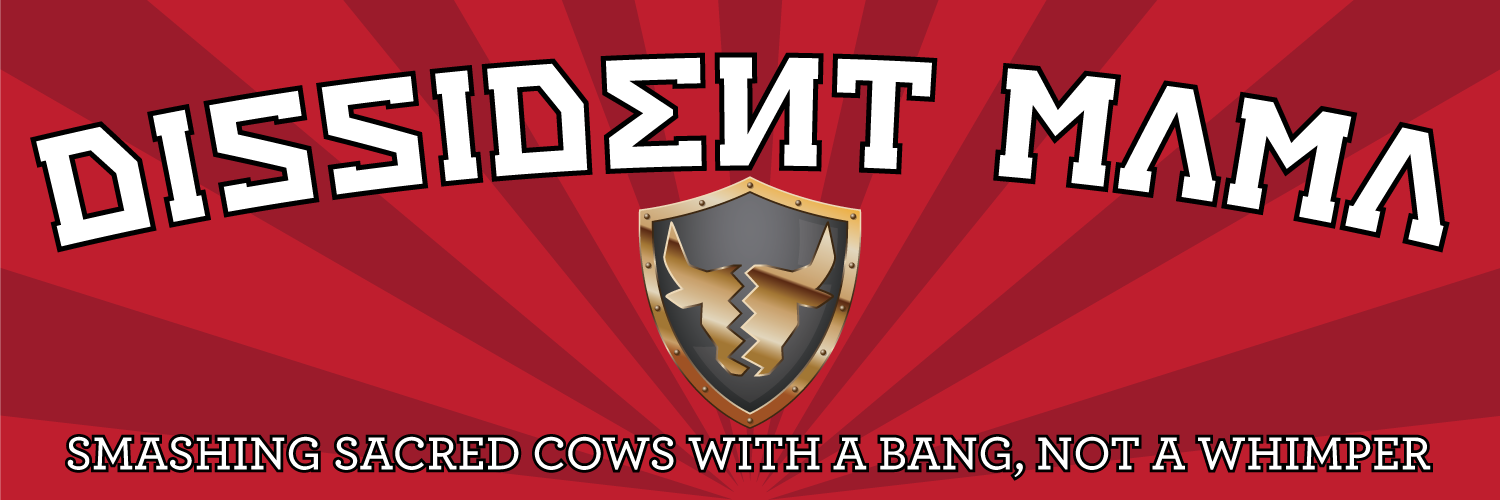Today’s “A Day Without Women” is an event allegedly based upon highlighting “the economic power and significance that women have in the U.S. and global economies, while calling attention to the economic injustices of women.” I mean, when the organizers of the occasion say they want to utilize the “militant feminist struggle” in order to support and strengthen “anti-capitalist feminism,” what do you expect?
No wonder that when it comes to economics, the grrrls blab incessantly about supposed wage discrepancies between men and women. Feminists either have no clue as to how unfettered capitalism works (that it actually pulls people out of poverty), or they do understand but just want to use an emotional talking point to hammer out justice against their reputed oppressors: men.
Even novice economists like me appreciate that the free market is basically a reflection of human nature and choice. You can pursue virtue or vice. Self-interest or selfishness. Enterprise or plunder. It’s about freedom. And the market will sort it all out eventually, that is, if the government doesn’t get in the way.
As sociologist Franz Oppenheimer described, if a person doesn’t use economic to acquire wealth, he must then use political means. Those are his only two options: a science of means or socio-political intrusion.
In politics, the state is the creator of inequality. Its meddling causes distortions in the market. This leads to “crony capitalism” (a.k.a. “corporatism”), in which the government picks winners and losers, regulates affirmative-action and gender quotas, promotes artificial incentives while penalizing others, and tries to push a political end to a state-created economic predicament.
And what is that predicament for modern American feminists? That women get paid 77 cents for every $1 men earn. The 23-cent difference of this “gender wage gap” is calculated by taking the median earnings of women working full-time divided by the median earnings of men working full-time.
If this gender wage gap were genuinely true and employers could get away with paying a woman less than a man for the exact same work, I’m certain all smart businesses would be taking advantage of this gold-mine-of-a-scam, hiring only females. Why on earth would a boss, who’s biggest concern is his bottom line, hire an over-priced male employee? That’d just be idiotic economics.
What the anti-capitalist feminists don’t want you to know about this seemingly unjust 23-cent statistic is that the disparity doesn’t account for other critical variables, such as occupation, position and specialty within your profession, hours worked per week, education, and job tenure. And when you account for that missing data, the variation in wage narrows to almost the point of non-existence.
Let’s take education, for example. A 2015 Georgetown University study found that of the five highest-paying college majors, men overwhelmingly pursued those academic paths in four out of five categories. Conversely, four out of five of the lowest-paying majors were female-dominated fields. Hmmm, pretty important input to consider, don’t ya think?!
So, what’s really causing the imbalance is personal choices and preferences, not the patriarchy. Aha, but the feminists have concocted a clever rebuttal to that economic reality.
Because they’re constantly trying to convince women of their oppression, victimhood, and lacking autonomy, feminists claim the so-called inequality is due to invisible barriers and internalized subjugation. In other words, social conditioning makes women not truly free when making their own decisions. They aren’t actors in their lives, they are always acted upon. They are weak and have no agency.
The sexist stereotypes are so powerful, says NOW, that they “steer” women into less-lucrative career paths and sometimes even toward … way for it … family roles. Gasp! Translation: females too stupid to know what’s best for them. I guess that’s why feminists always desire government solutions to their made-up problems. Well, that, and because they want to disadvantage and punish men.
We aren’t owed anything. Not a job. Not a promotion. Not special benefits. Not a certain wage. Not a family. Not happiness. Not prosperity. Not freedom. Those have to be fought for, earned, and maintained by doing the things necessary to succeed, no matter who or what stands in your way. No excuses. That’s true strength.
There’s also a realization that I think all people, not just women, need to grab hold of: people aren’t as irreplaceable as they may think, especially when it comes to employment. The Pareto Principle is an economic concept that proves only 20% of employees do 80% of the work. Also know as “the law of the vital few,” this economic rule can be applied to all sorts of aspects of business, as well as personal life.
But feminism has cajoled women into thinking that they’re unparalleled in their professions. Just beyond compare. Peerless. “Unbossed and unbought,” as the late Shirley Chisholm used to say.
Funny thing is that Marxism claims to want exact equality for everyone – no one smarter or more creative, richer or more talented, prettier or more educated than anyone else – yet feminists don’t want their supposed egalitarian ideal to apply to them. They want to be put on an economic pedestal.
As long as their on top in this privileged high perch, screw everybody else. The truth is, even if you fall within Pareto’s 20%, your high-heeled shoes can probably be easily filled when it comes to the workforce.
Obviously, we can think of exceptions, like a one-of-a-kind entrepreneur, revolutionary inventor, unique creator, super-skilled craftsman, or huge titan of industry. Leaders, innovators, pioneers, and experts in a field. But I think most clear-minded people understand that unless you’re the best in the world at your trade or profession, you’re probably pretty darn replaceable.
There’s competition from automation, off-shore labor at half the wage, more talented folks, harder working employees, employees with more experience, people with natural-born skill, a young buck with a cheaper price tag, and just anyone out there who’s vying for your position and would be grateful for a job opportunity.
Today when many feminists have taken the day off in order to prove their economic worth, we must also consider that some women can’t afford to strike. Some women with a good work ethic may not want to force their co-workers to pick up the slack while they’re off, marching in the streets or at home watching “This Is Us” on Netflix.
Some may see earning income as way more important to advancing their self-interest than participating in a faux rebellion. That’s just good economics, y’all.
Meanwhile, as my husband toils away at his occupation, sitting in a cubicle under fluorescent lighting, and dealing with all the insufferableness that can come with corporate culture, I’ll be here, chilling in my yoga pants and tending to the “unpaid work” my sweet hubby subsidizes: homeschooling, full-time rearing of the kids, and blogging. Now there’s some economic power, ladies.
More on women’s personal choices and the feminist assault on domesticity in my next blog. Stay tuned.





